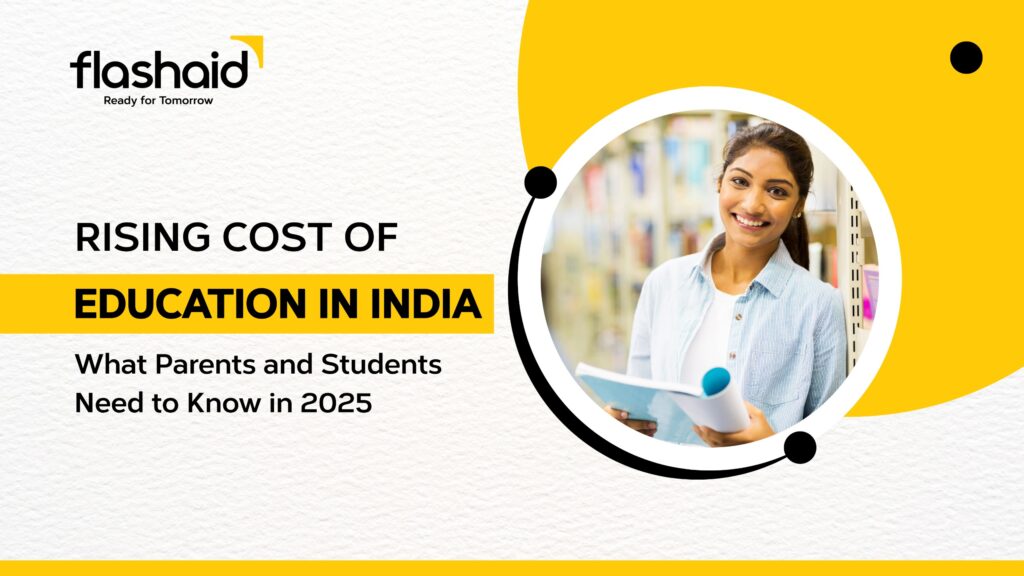India boasts the largest youth population in the world – 66% of its citizens are under the age of 35. But, this demographic advantage comes with its own set of challenges. Intense competition, sky-high aspirations, and rising education costs have turned learning into a luxury for many. From private nursery schools to elite MBA programs, the price of education is increasingly burning a hole in the pockets of Indian families.
At present, parents are spending beyond their means – be it on coaching classes, books and study materials, digital tool subscriptions, school trips, and other miscellaneous expenses. That’s not all. Students, in turn, are under mounting pressure to stand out from their peers and perform consistently well, only to justify and make sense of these inane financial investments.
As inflation is constantly compounding, and the cost of quality education is becoming more and more punishing, it is imperative that parents navigate through this decade-long journey with serious financial planning and smart decision-making. Below, we will cover in more detail the perils of the current education system and how parents can stay well prepared, practical, and protected from it all.
The Numbers Don’t Lie
If you are under the assumption that only higher education is costly, then think again. The rising cost of education in India has reached a point where parents are under a severe financial crunch. Don’t believe us? The data speaks for itself.
- Private K–12 Education: A top-tier private school charges annual fees between ₹1.5 – 3 lakh in metro cities. The costing for transportation, meals, uniforms, and extracurriculars is separate.
- Higher Education: Engineering and MBA programs at private institutions can cost anywhere between ₹10 – 25 lakh for the entire course. The situation is even more dire for those planning to pursue medical studies, with fees touching ₹50 – 60 lakh.
- Study Abroad: Undergraduate programs in the US or UK can cost upwards of ₹1 crore, factoring in tuition, living expenses, and travel.
Thus, putting severe pressure on parents or guardians to manage their finances.
What’s Driving this Sudden Hike?
- Tech-Driven Learning: EdTech subscriptions, smart classrooms, and digital infrastructure need continuous investment, increasing institutional costs.
- Urban Pressure: The high standard of living in urban areas forces even dual-income households to stretch their budgets, often dipping into savings or compromising lifestyle needs.
- Limited Supply, High Demand: The imbalance between available schools/colleges and the student population allows private institutions to charge premium fees.
- Faculty Salaries: To attract and retain quality educators, institutions offer high salaries, a cost ultimately passed on to parents.
Smart Financial Planning is Non-Negotiable
In today’s world, parents need a strong plan.
| Approach | What it means | Why it matters |
| Start Early | Plan finances in advance using SIPs, child plans, and education funds. | Small, consistent savings reduce stress when major fees arise. |
| Find Alternatives to Education Loans | Look beyond banks to explore new-age startups offering lower-cost financial support. | Avoids heavy debt and pressure on students post-graduation. |
| Choose the Right Institutions | Opt for schools/colleges partnered with FlashAid. | Experience benefits like fee protection, coverage plans, and financial assistance. |
Stay Informed. Stay Empowered.
Education is not a straightforward expense anymore. It requires careful planning of funds to ensure your children get the best of education. While the rising costs are unavoidable, the way parents respond to them will make all the difference in the world.
As you evaluate schools or colleges for your child, ask the bigger questions:
- Will this institute invest in my child’s future and prepare them to face real-world challenges?
- Does the college offer financial flexibility, support, and coverage to protect families during emergencies?
Because, at the end of the day, your child’s success shouldn’t come at the cost of your family’s financial well-being. So, stay informed, plan ahead, and stay future ready at any cost!
Latest News
